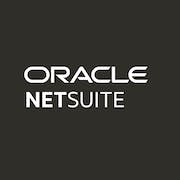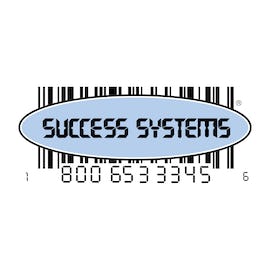Looking for the best inventory management software? Our comprehensive buyer's guide covers everything you need to know to make an informed decision. Compare top solutions and find the right one for your business today!
Inventory management is a crucial aspect of any business, big or small. It can be complicated, time-consuming and prone to error if not managed effectively. Fortunately, we live in an era of software systems that can automate and optimize the inventory management process, saving time, reducing costs, and improving accuracy. However, with so many different options available, it can be challenging to choose the right one for your business needs. In this buyer's guide, we will provide valuable insights on a wide variety of key features to consider, benefits, drawbacks, and best practices to help you make an informed purchase decision.
What is inventory management software?
This is a powerful tool that helps businesses of all sizes to manage their inventory levels accurately and efficiently. It provides them with real-time inventory data that enables them to make informed and timely decisions. It also helps to reduce waste, improve productivity, and contribute to overall cost savings.
Its common use cases include:
- Tracking inventory levels in real-time
- Automating inventory orders based on preset parameters
- Providing businesses with data-driven insights to make informed purchasing decisions
- Optimizing warehouse space and storage by using demand forecasting
- Reducing theft and loss through tracking and monitoring products
- Managing multiple locations and warehouses through the software's centralized system
Inventory management software is commonly used by e-commerce companies, retail businesses, wholesale distributors, manufacturers, and healthcare facilities. Businesses that deal with perishable goods or have a high turnover of products greatly benefit from using it.
What are the benefits of purchasing an inventory management platform?
Inventory management is an essential aspect of running a successful business, no matter the industry. With the right solution, businesses can streamline and optimize their inventory management processes and achieve a wide range of benefits. Here are some of its main benefits:
- Increased efficiency: This tool automates many of the time-consuming tasks associated with inventory management, such as tracking inventory levels, ordering new products, and managing purchase orders. This increases efficiency and frees up valuable time for employees to focus on other important tasks.
- Improved accuracy: Manual inventory operations are often prone to errors, such as overselling products or under-ordering inventory. Inventory management software uses sophisticated algorithms and real-time data to ensure that inventory levels are accurate and up-to-date. Research has shown that 40% of retailers are investing in software solutions to improve their inventory’s accuracy and visibility.
- Better decision-making: With this system, businesses can access real-time data and analytics about their inventory levels, sales trends, and customer demand. This enables them to make data-driven decisions about purchasing, pricing, and other important aspects of their business.
- Cost savings: By optimizing inventory levels and reducing the risk of stock-outs and overstocking, businesses can save money on storage costs, reduce the risk of spoilage or obsolescence, and avoid expensive rush orders.
- Improved customer satisfaction: It enables businesses to ensure that popular products are always in stock, reducing the risk of backorders and delays. This improves customer satisfaction and can lead to increased sales and repeat business.
10 key features of an inventory management solution
Inventory management is crucial for companies to ensure that they have the right stock at the right time. This technology is a valuable tool that can help businesses manage their inventory more effectively. Here are 10 of its common features:
1. Inventory tracking:
It allows businesses to track inventory levels in real-time. This helps businesses to ensure that they never run out of stock.
2. Inventory analysis:
The system provides inventory analysis, which helps businesses to identify trends and make informed decisions about inventory levels.
3. Order management:
This solution can automate the order management process, which makes it easy for businesses to fulfill customer orders quickly.
4. Purchasing management:
This inventory tool provides purchasing management features that help businesses to purchase goods from suppliers and track deliveries.
5. Reorder management:
The technology can help businesses to set reorder points for products and generate reorder alerts when the inventory falls below the designated level.
6. Barcode scanning:
Barcode scanning features help businesses to track inventory and manage stock levels with ease.
7. Multi-location support:
It can also support multiple locations, which makes it easy for businesses with multiple storefronts or warehouses to manage inventory across all locations.
8. Reporting:
The application provides detailed reporting and analysis tools that help businesses to gain insights into their inventory levels and make informed decisions.
9. Integration:
The program can also integrate with other business applications, such as accounting software and point of sale systems, to streamline inventory management and reduce manual data entry.
10. Mobile access:
Many inventory management software solutions offer mobile access, which makes it possible for businesses to manage their inventory from anywhere, at any time.
What to consider when adopting an inventory management solution?
There are so many software options available in the market, and selecting the right one can be challenging. In this section, we'll discuss the key factors to consider when purchasing this system.
- Scalability: It's important to select a solution that can grow with your business. Depending on your business size and requirements, you may need a system that can accommodate a large number of SKUs, multiple warehouses, and users.
- Integration: Your inventory management system should seamlessly integrate with other software you use, such as your Point of Sale (POS), accounting, or eCommerce platforms. This keeps your data updated and helps avoid human error.
- Ease of use: A user-friendly interface is essential for both new and experienced users. Software that is easy to navigate and has prominent features will save you time and help reduce mistakes.
- Mobile functionality: With many people using their phones for work, having a mobile-friendly app can make inventory management easier. Being able to track stock, add stock takes, and check orders from a mobile device will make your team more productive.
- Reporting analytics: Your solution should provide detailed inventory reports and analytics to help you make informed decisions. Reports can include inventory valuation, stock forecasting, order status, and sales performance.
- Security: Inventory apps should be secure. Ensure the software you choose has data encryption and authentication protocols. User permissions and access controls also help keep your inventory data safe.
- Customer support: No software is perfect, and you may need assistance at some point. Ensure the one you choose offers reliable customer support, such as phone and email support, online chat, and a comprehensive knowledge base.
By considering these factors, you can find an application that meets your business requirements and budget. Investing in the right system will help streamline your inventory processes, reduce costs, and increase efficiency.
Industry trends for an inventory management application
Inventory management software has become increasingly important for a variety of businesses that want to improve their operations and remain competitive in today's fast-paced economy. With the market constantly evolving, it's essential to stay up-to-date with the latest trends to stay ahead of the curve. Here are some of the biggest trends to look out for in 2024 and beyond:
1. AI-enabled forecasting:
Artificial intelligence (AI) is becoming more and more prevalent in this technology thanks to its ability to analyze large amounts of data quickly and accurately. With AI-enabled forecasting, businesses can now predict demand, optimize inventory levels, and reduce waste.
2. Omni-channel support:
Customers nowadays expect to be able to purchase products in-store, online, and through mobile apps. As such, inventory management software that offers omni-channel support is becoming a must-have for businesses that want to provide a seamless shopping experience to their customers.
3. Cloud-based solutions:
Managing inventory can be a cumbersome task, and businesses are now looking to cloud-based solutions to simplify the process. Cloud-based inventory solution allows businesses to access real-time data from anywhere, anytime, and on any device.
4. RFID technology:
Radio-frequency identification (RFID) technology is revolutionizing inventory management by providing real-time tracking of inventory levels. With RFID tags, businesses can easily locate items, track their movement, and monitor their status in real-time.
5. Inventory analytics:
Analytics tools integrated into inventory management technology offers businesses the opportunity to gain better insights into their inventory performance. These tools can range from basic performance metrics such as inventory level tracking and order fulfillment rates to more advanced analytics such as demand forecasting and ABC analysis.
Conclusion
To sum up, the adoption of inventory management software is essential for businesses seeking to thrive in today's dynamic marketplace. The above trends underscore the transformative potential of this system, emphasizing its role as a game changer in optimizing operations and enhancing competitiveness. Coupled with its advanced inventory features as outlined in this guide, businesses can streamline their processes, improve decision-making and effectively manage their inventory levels. According to statistics on supply chain technology adoption, only 40% of companies currently use inventory and network optimization technologies. More companies ought to implement these innovations which will ensure efficient supply chain management, customer satisfaction and sustainable growth and success.








